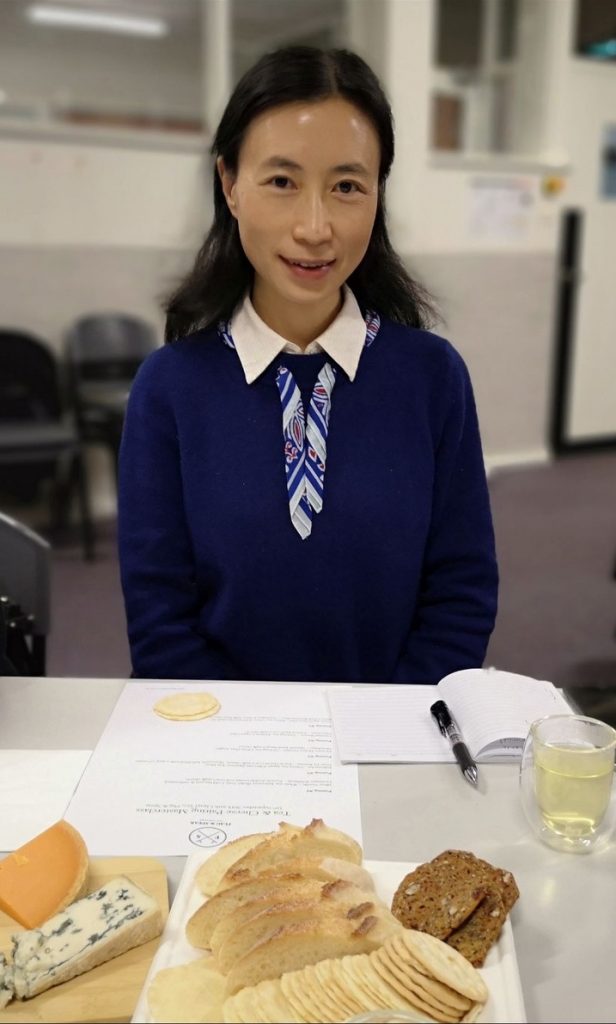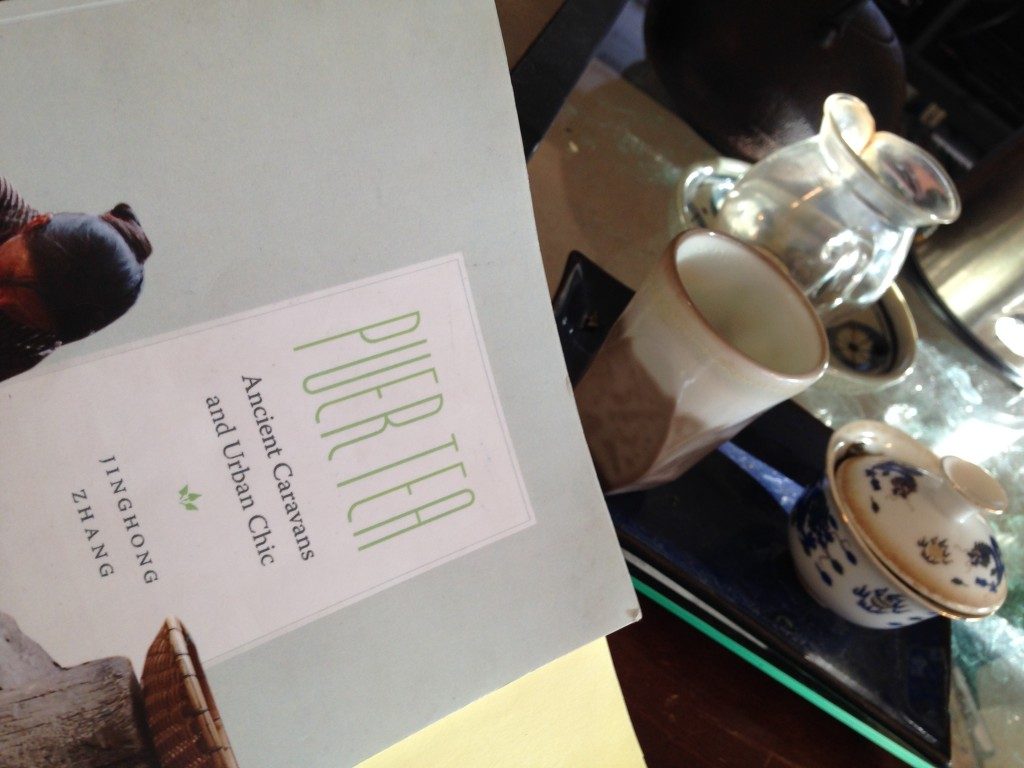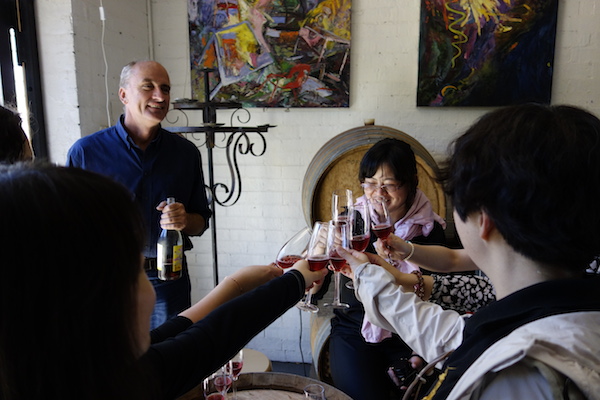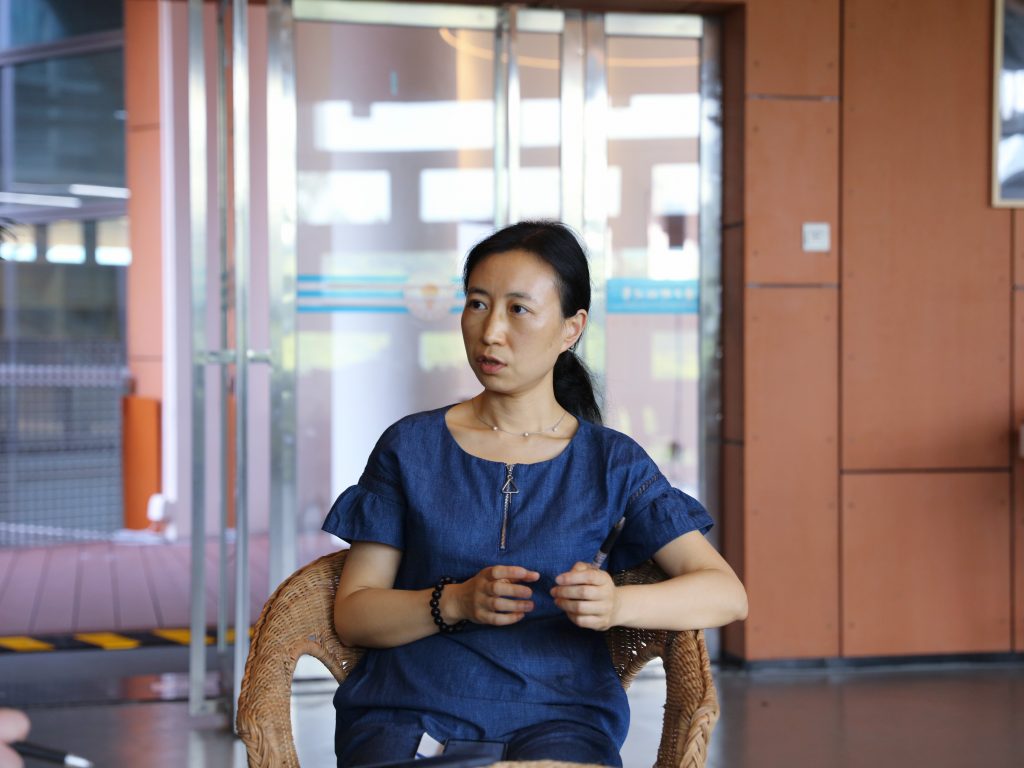While SUSTech is noted for its science, technology, engineering and mathematics fields, it’s increasingly recognized for its research in the liberal arts. With excellent scholars in a variety of fields, SUSTech’s investment in this area was bound to provide results. Within the Center for Social Sciences, there works a former journalist from one of the tea centers of China. Her research on tea and wine, along with our inexplicable cultural connection to food saw us sit down for an interview with Associate Professor Zhang Jinghong.

Who is Zhang Jinghong?
Zhang Jinghong started her academic career in Kunming at Yunnan University, where she completed her Bachelor of Arts, majoring in Journalism. When we talked to her, she admitted that she did not expect to head into academia when she first started studying but did not deny that her journalism studies have helped her since then.
“I have to say that my initial dream was to become a journalist, especially a television journalist, and that dream came into reality. However, I became an anthropologist later, because I wanted to continue to do work that was meaningful to me. I had interviewed many people as a journalist, and as an anthropologist, this would become fieldwork. While interviews are important in both fields, I would be talking to people in a very different way.”
Zhang Jinghong spent some time as a reporter and editor for Kunming Television, before returning to Yunnan University to complete a Master of Arts, majoring in Folklore Studies. On her graduation with her postgraduate qualification, she began lecturing in the Department of Journalism at Yunnan University.
Puer Tea Piques Her Interest
As a native to Yunnan Province, she was interested in tea and tea culture. “If I was born in Fujian Province, I would study oolong tea. If I was born in Hangzhou, I would study Dragon Well (Longjing) tea, so I guess this is connected to your homeland.” It wasn’t until the 21st century that Puer tea around China became a product different from what she was used to in Kunming. Zhang talked about how the packaging of the tea had turned Puer tea into a hot commodity in the 21st century, and she was curious about how that came about.
This curiosity led her to head to take up her Ph.D. studies, and ultimately to head to Australia. Zhang studied at Australian National University in Canberra, where she got her Ph.D. in anthropology. During her time in Australia, she wrote several articles about Puer tea in both English and Mandarin, in both online and offline forums. Her articles were well regarded and the source of much discussion within the Chinese tea community. Her supervision panel encouraged her to expand from tea culture to think more widely about cross-cultural understanding related to food.

“While the examples they gave were not about tea, I could see a lot of similarities, and it gave me a lot of insights. I thought it would be fascinating to borrow insights from food and apply them to tea.”
Those insights did not translate immediately. “I found it very hard to explain about tea in English. So, a number of people suggested I read English literature about wine, cheese, and chocolate, which are in abundance in Australia.”
Following her successful Ph.D. studies in Australia, she returned to Yunnan to lecture in the Department of Journalism but eventually found the pull back to ANU. She joined the then recently formed Australian Centre of China in the World as a Postdoctoral Fellow.
Why is Food Culture So Important?
We talked about the importance of food to culture. Zhang believes that it derives from the need to survive, and the desire for food that you know and recognize never diminishes. She also points towards food as a strong signifier of identity.
“I’ve found a lot of examples for people moving from one culture to another, yet their attitude towards food is the hardest to change.”
It’s also the link between culture and memory that explains the universal understanding that your mother’s cooking is better than other people’s cooking. Zhang explained that cultural memories are worth a lot, as food is not just food, it is the connection to your home and family.
Given the influence of her Ph.D. panel and her exposure to Australian food culture, Zhang’s work on the comparisons between tea, wine, cheese, and chocolate was worth noting. She had written and talked extensively about the confluence between tea and wine tasting.
“The concept of tannins is important, as both wine and tea have similar growing methods, have similar levels of complexity, have numerous varieties, both here and in the West. I understand that many wine drinkers, particularly in Europe, the US and Australia, become interested in tea because they think they are very complex.”

Having said that, understanding one of tea or wine does help understand the other, but they are not immediately connected. Crossing the boundaries to get the real understanding is a real challenge, and part of that is dealing with the cultural barriers in each drinking culture. One of the biggest barriers is what she describes as the culture surrounding the commodity. Zhang spoke of how some tea drinkers feel incredibly uncomfortable in wine bars drinking wine, and a colleague of hers who runs a wine bar cannot stand to go into traditional Chinese tea houses. Such cross-cultural barriers are a source of future research for her, and how the symbolic values and meanings attached to them influence individuals.
Zhang’s current research also looks at the broader sensory landscape, in which she is trying to work out how people use their cultural surroundings to influence the impact of things. She spoke about how wine tends to be described very accurately in terms of its flavor, while tea is not so, and part of her reading is investigating why this is the case.
Food and Film
As our conversation continued, we delved into her experience as a journalist and why audio-visual productions of food did so well. A Bite of China was a prime example of high-quality television using pioneering film, described by some as the best TV show about food ever made.
Zhang described how the uniqueness of the show came about, including the briefness of the voiceovers and the beauty of the camerawork. With thirty of the best filmmakers in China working for more than a year to create a seven-episode season, the outcomes were outstanding and resulted in incredible stories. She explained that the stories were about people’s homes, that made people feel homesick and long for the food from their hometowns. Certainly, those that watched the show wanted to eat the food through the screen, and there have been instances of cookware being shown on screen being on waitlists of up to two years.

SUSTech and Zhang Jinghong
Zhang joined SUSTech in 2017, as she started to hear a lot about it at the end of her postdoctoral fellowship. Her friends and colleagues in the field told her that SUSTech is famous for being innovative and doing things differently from traditional universities. She also knew Chair Professor Zhou Yongming, who was already in place at the Center for Social Sciences and the Institute for Advanced Studies in Social Sciences here at SUSTech. He is well regarded in his field, and Zhang believed that he would build a great center. She read about how the Center for Social Sciences was to be structured around research clusters, instead of around disciplines. A clustered structure encourages interdisciplinary dialogues and research, which is something that attracted Zhang. She was fortunate enough to be accepted into her position at SUSTech as an Associate Professor.
While Zhang has been at SUSTech for less than two years, the university has been great supporters of her research. She has had the opportunity to go out and do the fieldwork with the funding she needs to do appropriate research. Zhang hopes that she will be able to use some of her research funding for overseas fieldwork and research in the future, given her focus on cross-cultural understanding. She needs to go overseas to talk to people and understand them.
Message for Social Science Researchers
I have actually encouraged a lot of people to apply for jobs at SUSTech. I said to them; it is an innovative university. It is ambitious, it is open and encourages innovative thinking. When you come here, you can find people who share similar understandings about how to work and collaborate with you efficiently. I also say that this is still a new university, so there are many things that are a work in progress, so please be patient and be tolerant.
Proofread By
Photo ByStudent News Agency